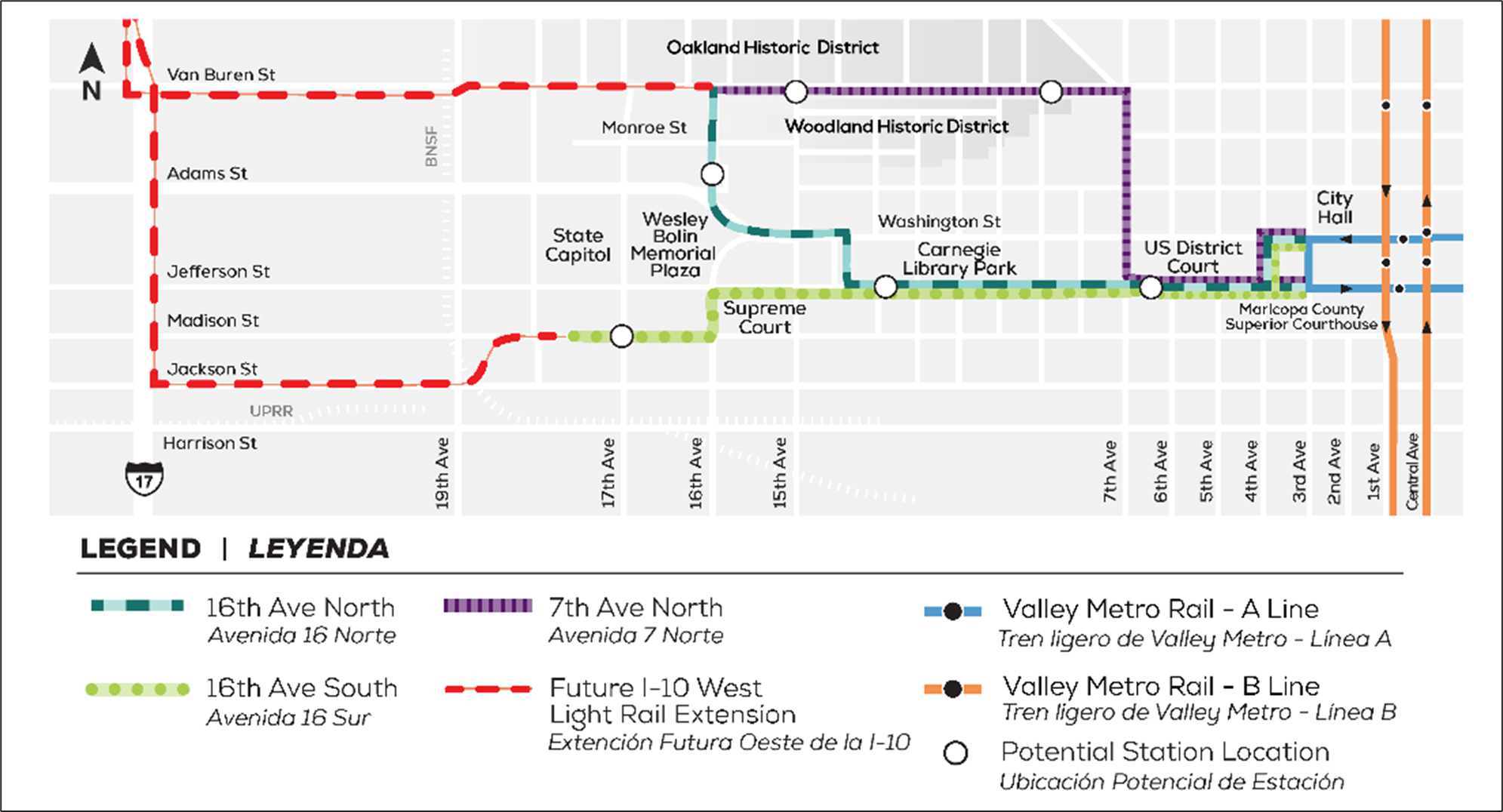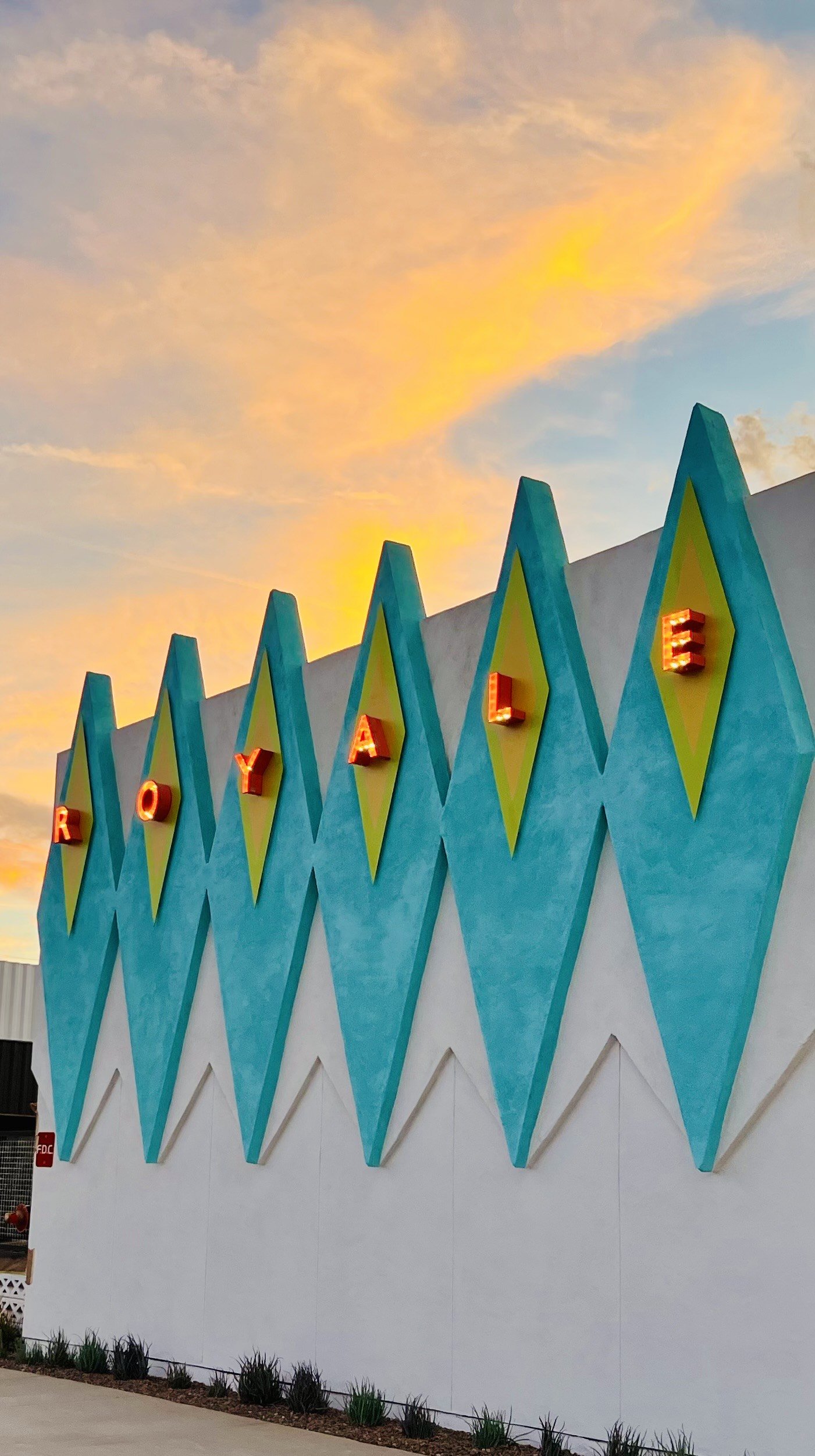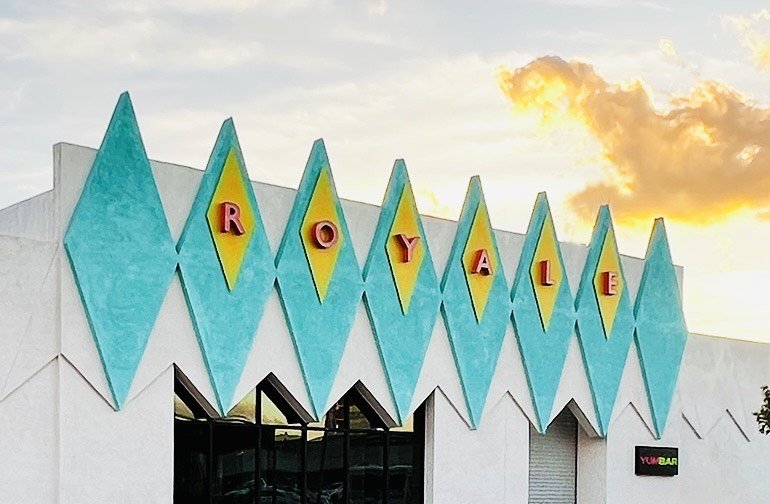Urban Phoenix Project Blog

Light Rail Under Attack (Again): Phoenix Must Follow Through on the Promises Made in Prop 104
The voters did their part by passing Prop 104 (now called Phoenix T2050), but now some officials are trying to derail the Light Rail extensions that it promised.

The Neglected 7s of Phoenix: Transit Upgrades to Build a Real City
Phoenix’s Central Avenue has been activated by sufficient transit and relatively intense land use. Can BRT help the 7s?

Rethinking T2050: Aligning Phoenix’s Transportation Funding with Safety and Equity
Nearly a decade after Phoenix voters approved Transportation 2025, questions remain about how well T2050 investments align with Phoenix’s Vision Zero goal of eliminating traffic deaths and serious injuries, as well as with the city’s broader Climate Action Plan objectives.

Reverse lane reactions: If you think the problem is increased congestion or people who can't read signs, you are missing the point.
After 50 years of having these lanes, THINGS CHANGE. But one thing never changes on this issue - the Council's decision to KEEP these lanes in support of a few constituents who may use these lanes over the many who don't, and yet are majorly and negatively impacted by their existence.

Reverse lane reactions: New study should reflect the real economic and social hardships
Reverse lane reactions: I want to be sure that any new study addresses the real economic and social hardship that the reverse lanes cause. We don't believe the new study should solely address traffic flow, as this is a multi-layered urban issue.

Just One More Study: Process Delays Progress Once Again For Reverse Lanes
Despite a push by city residents to remove the outdated reverse lanes in central Phoenix, the City Council recently decided to punt on the issue and asked instead for yet another study.

Maximizing the Impact of HB2721: A Bold Approach for Phoenix Zoning Reform
Arizona’s HB2721 presents Phoenix with a rare opportunity to make progress on multiple challenges at once: housing affordability, infrastructure efficiency, climate resilience, and long-term fiscal stability.

Why Isn’t Phoenix Funding the Projects That Matter?
In 2015, Phoenix voters did something visionary: they passed Proposition 104, a massive 35-year sales tax plan called Transportation 2050 (T2050). Ten years later, it’s time we ask: Why are key projects still waiting for funding?

The Reverse Lanes Are Outdated. Here's Why It's Time for Phoenix to Move On.
For decades, the reversible lanes on 7th Avenue and 7th Street have been a daily frustration for drivers, a danger to pedestrians and cyclists, and a barrier to local businesses. As Phoenix grows into a more multimodal, connected city, these lanes are increasingly out of sync with the city's transportation and safety goals.

Phoenix has a choice on McDowell Road: Lead or Fall Back
When it comes to the future of McDowell Road between 7th Street and SR-51, Phoenix stands at a crossroads. The community has spoken, experts have weighed in, and the foundation has been laid. But despite all this, the City has stated that no funding has been identified for design or construction.

SCM1002 and the War on Road Safety: Debunking Misinformation About Vision Zero
Arizona’s SCM1002 and the War on Road Safety: Unlike conventional traffic safety approaches, which focus on individual responsibility, Vision Zero focuses on system-wide design improvements that prevent fatalities and injuries. The strategy prioritizes infrastructure and policy changes, such as reduced speed limits, improved pedestrian and cyclist infrastructure, and vehicle design enhancements.
